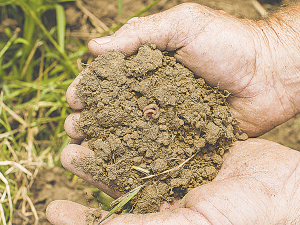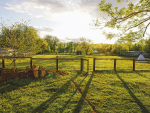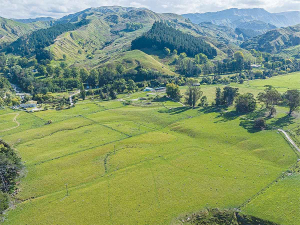OPINION: One teaspoon of soil contains more living organisms than there are people in the world and New Zealand loses about 192 million tonnes of soil to the ocean every year.
Without this “biological diversity” there would be no terrestrial life on earth.
In addition to providing habitat for billions of organisms, soil acts as a water filter and growing medium. It contributes to biodiversity, solid waste treatment, acts as a filter for wastewater and supports agriculture.
Unlocking the secrets of this complex chemical, physical and biological powerhouse – a powerful source of “natural capital” – has had a huge impact on human life.
The transformation of this type of natural capital into resources that people value and use is generally called ecosystem services.
It is a concept gaining more attention as we see environmental pressure increasingly applied to the health of resources, such as soil, we once took for granted.
Functional land management is a resource management framework that seeks to optimise the cropping and environmental returns from land. It focuses on soil functions related to agricultural land use: primary production, water purification and regulation, carbon cycling and storage, functional and intrinsic biodiversity, and nutrient cycling.
Building on that good work, some areas still need improvement.
Good practices needed include optimum cultivation and avoiding overgrazing and heavy grazing under wet weather, both of which can damage the soil’s structure and lead to compaction.
Others include carefully matching fertiliser applications to suit soil and crop requirements, practicing appropriate use of pesticides and other agrochemicals, managing pasture to maintain complete soil cover and careful application of farm dairy effluent to avoid saturation and to optimise organic matter and nutrient status.
Minimising humaninduced erosion and maintaining good soil quality are essential for maintaining soil ecosystem services such as nutrient and water buffering, productive capacity, assimilating waste and minimising impacts of sediment and other contaminants on water bodies.
Protecting sensitive areas on farms also benefits production. For example, wetlands deliver a wide range of ecosystem services such as improving water quality, flood regulation, coastal protection, and providing recreational opportunities and fish habitat.
Waikato Regional Council’s soil quality monitoring programme measures soil properties such as soil compaction, nutrient status, biological activity, soil carbon and organic matter at about 150 active sites (some sites are lost due to urban expansion etc, but new sites are added to keep the total number of 150). About 30 sites are sampled each year, so it takes five years to get around all 150 sites. The sites covered include the major land uses and soil types within the region.
The results show issues such as compaction and excessive nutrients and a variety of trends, such as to an improvement in some indicators like macroporosity (a measure of the proportion of large pores in the soil that provide the air supply to roots). The latter is most likely attributable to good land management practices undertaken by our farming community.
The council is committed to working with farmers, the wider agriculture sector and other stakeholders to increase the understanding of soil issues and to provide advice on sustainable agriculture practices that decrease impacts on our natural capital.
Soil is one of the most valuable assets that a farmer has. It is our collective responsibility to make use of soils without damaging either the soil or any other part of our environment, protecting them for our own use and use by future generations.
Let us name this decade as “Save Soil” decade.
Bala Tikkisetty is principal sustainable agriculture advisor at Waikato Regional Council. Contact him on 0800 800 401.


















